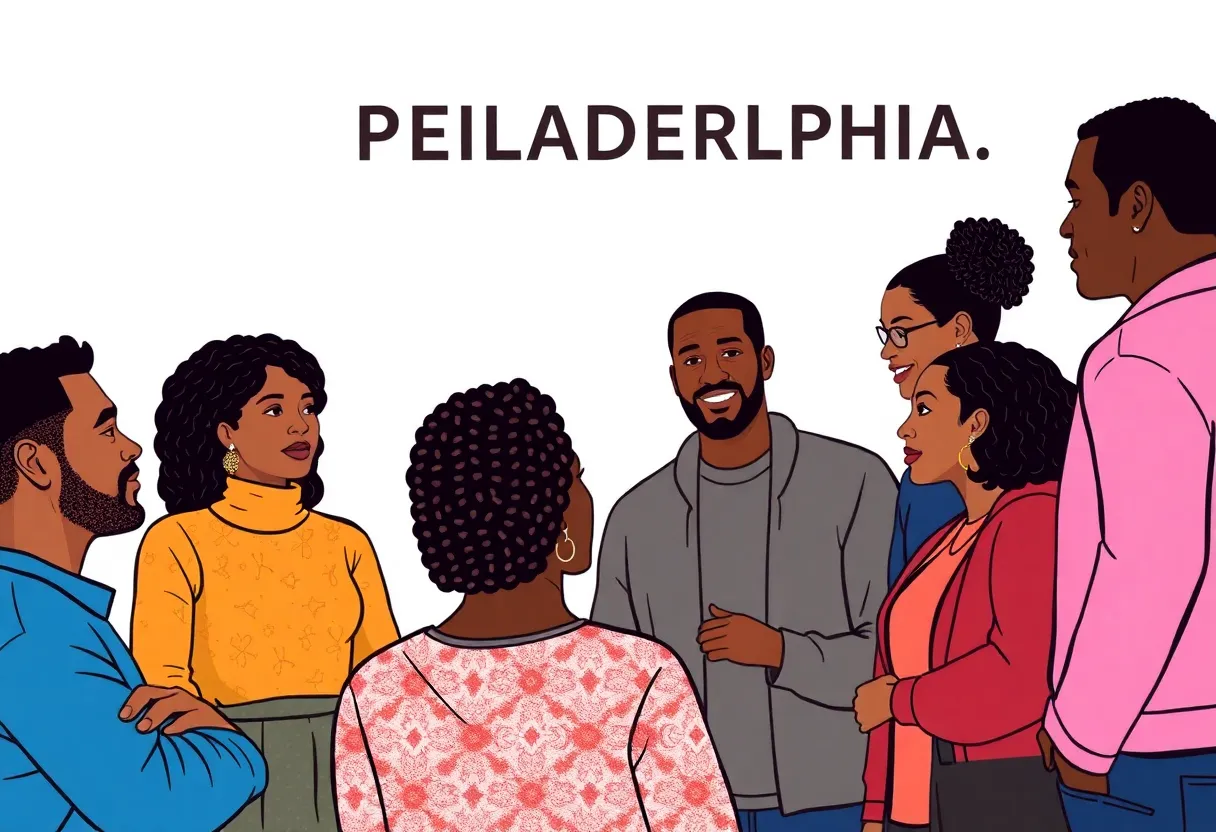News Summary
Philadelphia has launched the Reparations Task Force to address the historical injustices of slavery and discrimination affecting Black residents. The task force aims to explore reparations through community involvement and thorough research. Recently, a public listening session kicked off the initiative, allowing residents to share their insights. The task force’s mission focuses on crucial issues such as housing, criminal justice, and economic disparities—working towards a future of healing and empowerment for Black Philadelphians.
Philadelphia Takes Big Step Towards Addressing Historical Injustices
Philadelphia is making history as it launches the Reparations Task Force to tackle the lasting impacts of slavery and other forms of discrimination that have affected Black residents. This new initiative aims to dig deep into the historical injustices that have shaped the lives of many in the city and to explore what reparations might look like moving forward.
A Public Listening Session Kicks Things Off
Recently, the task force held its first public listening session, where community members had the chance to share their thoughts and concerns. It was a great opportunity for everyone to come together, including students, activists, and even elders and Japanese Americans, all united in support for this important cause. The energy in the room was palpable, with a sense of hope for a brighter future where historical wrongs can be addressed and acknowledged.
The Task Force’s Mission
So, what exactly is the mission of the Philadelphia Reparations Task Force? It consists of 10 dedicated members—each chosen for their unique experience, perspective, and connection to the issue. Among them are co-chairs Breanna Moore and Rashaun Williams, who are involved with the local chapter of the National Coalition of Blacks for Reparations in America. They will work to study the effects of slavery, Jim Crow laws, and systemic racism on Black Philadelphians, ultimately crafting recommendations for reparations that could positively impact the community.
One of the key focuses of the task force is addressing crucial areas such as housing market issues, criminal justice reform, economic disparities, and even health disparities that many Black residents continue to face. There’s no denying that combining these critical issues with the historical context will help in shaping a fair and effective reparations program.
Legislation and Community Involvement
The spark for the task force was ignited when City Councilmember Jamie Gauthier co-sponsored legislation that passed unanimously back in June. This legislation was a statement of change and acknowledgment of the need to address the economic and social inequities that persist today. To be a part of the task force, members must be connected to Philadelphia’s history—specifically as descendants of enslaved Africans or individuals who identify as Black, Negro, or Colored Americans since the end of slavery.
This is only the beginning. The task force is encouraging all community members interested in joining the discussion or sharing their insights to visit their website at Rep215.com. There will be future public events and town halls aimed at increasing community involvement in the reparations conversation.
Challenges Ahead
While the city is taking a step in the right direction, it’s important to remember that past efforts for reparations in Pennsylvania have faced challenges. There was a proposed reparations bill introduced in 2019 by a local state representative, but progress has remained slow. The support from the task force’s creation should pave the way for a more proactive approach to reparations in the state.
Cities like Evanston, Illinois, and Asheville, North Carolina have already implemented reparations programs, providing a blueprint that Philadelphia can learn from. A task force in California is already advancing legislation to build upon research regarding reparative justice. So, there’s no shortage of examples for Philadelphia to lean on as it gears up to make a difference.
Looking Towards the Future
As Philadelphia continues its journey towards providing reparations, it is clear that the goal isn’t just monetary compensation, but a genuine effort to heal the wounds of the past. The task force aims to connect the dots between historical injustices and present-day challenges, such as underfunded schools and community health issues.
This movement is part of a broader national conversation on reparations, which has gained momentum, particularly after recent social justice movements. The creation of the Philadelphia Reparations Task Force is a promising step in not only recognizing the injustices faced by Black Philadelphians but also in prioritizing their rights and potential for a better tomorrow.
Philadelphia is on track to not just address history, but to pave the way for a future where every individual has the chance to thrive. Keep an eye on this developing story—after all, it’s a community endeavor that affects us all.
Deeper Dive: News & Info About This Topic
HERE Resources
Additional Resources
- PHL Council: Part-Time Project Manager – Philadelphia Reparations Task Force
- Billy Penn: Philadelphia Black Reparations Task Force
- Inquirer: Philadelphia Reparations Task Force Explained
- NBC Philadelphia: City Leaders Announce New Philadelphia Reparations Task Force
- Philly Voice: Philadelphia Reparations Task Force Application
- Wikipedia: Reparations for Slavery
- Encyclopedia Britannica: Reparations
- Google Search: Philadelphia Reparations Task Force
- Google Scholar: Philadelphia Reparations
- Google News: Philadelphia Reparations Task Force

Author: STAFF HERE PHILADELPHIA WRITER
The PHILADELPHIA STAFF WRITER represents the experienced team at HEREPhiladelphia.com, your go-to source for actionable local news and information in Philadelphia, Philadelphia County, and beyond. Specializing in "news you can use," we cover essential topics like product reviews for personal and business needs, local business directories, politics, real estate trends, neighborhood insights, and state news affecting the area—with deep expertise drawn from years of dedicated reporting and strong community input, including local press releases and business updates. We deliver top reporting on high-value events such as Mummers Parade, Philadelphia Flower Show, and Thanksgiving Day Parade. Our coverage extends to key organizations like the Greater Philadelphia Chamber of Commerce and United Way of Greater Philadelphia, plus leading businesses in telecommunications, food services, and healthcare that power the local economy such as Comcast, Aramark, and Children's Hospital of Philadelphia. As part of the broader HERE network, we provide comprehensive, credible insights into Pennsylvania's dynamic landscape.





